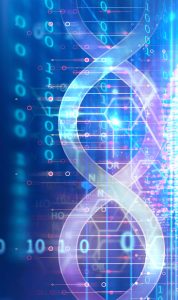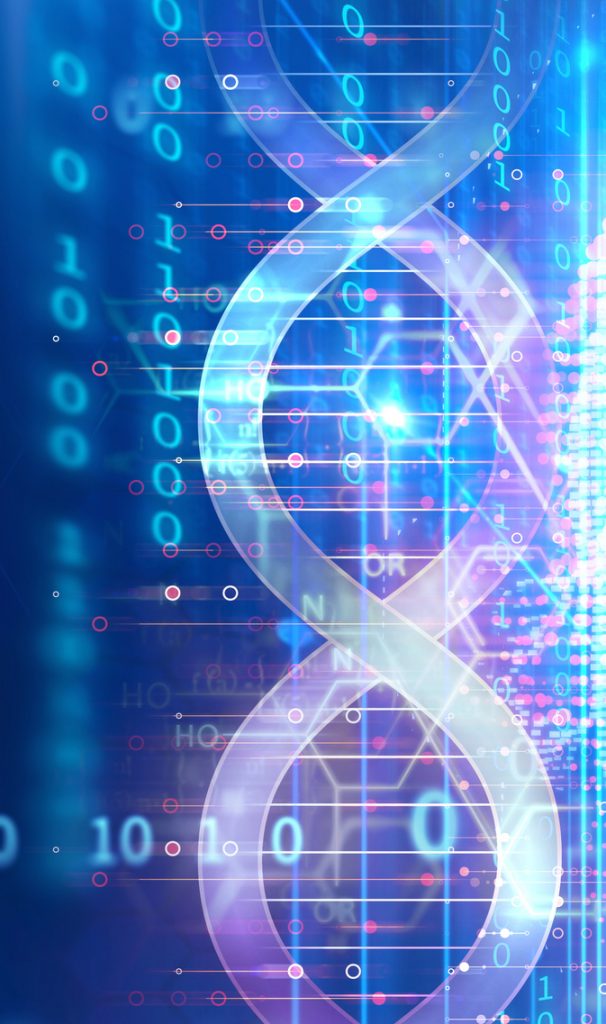 In this column, by Joe Pizzorno, from the June issue of Integrative Medicine, a Clinician’s Journal, he discusses whether the medical community is misusing genetics and genomics. He makes the statement that “interpretation of genetics simply from the perspective of disease risk greatly limits our ability to use the huge amount of information now becoming readily available about the uniqueness of each patient.” He says by matching single-nucleotide polymorphism (SNP) results with specific diseases is good for a disease-drug model, but doesn’t do justice to the patient. The following is his abstract followed by the full text.
In this column, by Joe Pizzorno, from the June issue of Integrative Medicine, a Clinician’s Journal, he discusses whether the medical community is misusing genetics and genomics. He makes the statement that “interpretation of genetics simply from the perspective of disease risk greatly limits our ability to use the huge amount of information now becoming readily available about the uniqueness of each patient.” He says by matching single-nucleotide polymorphism (SNP) results with specific diseases is good for a disease-drug model, but doesn’t do justice to the patient. The following is his abstract followed by the full text.ABSTRACT / According to conventional wisdom, genetics accounts for only approximately 15% to 25% of disease, with the rest being due to lifestyle, diet, and environment. However, taking only the direct gene-to-disease approach is hugely, and unnecessarily, limiting. If we instead look at genetics from the perspective of metabolism, nutrient needs, and environmental resilience, a very different picture emerges. A person with multiple polymorphisms in  methylene tetrahydrofolate reductase (MTHFR) will almost always have an elevated blood homocysteine and clearly increased risk of heart disease.
methylene tetrahydrofolate reductase (MTHFR) will almost always have an elevated blood homocysteine and clearly increased risk of heart disease.
 methylene tetrahydrofolate reductase (MTHFR) will almost always have an elevated blood homocysteine and clearly increased risk of heart disease.
methylene tetrahydrofolate reductase (MTHFR) will almost always have an elevated blood homocysteine and clearly increased risk of heart disease.However, when a person has polymorphisms leading to 1 or more of the liver CYP detoxification enzymes underfunctioning, they are more susceptible to the damaging effects of multiple environmental toxins. This does not lead to a simple connection to a specific disease, but rather leads to increased risk of multiple diseases if the person is also exposed to the toxins that should have been neutralized by the underfunctioning enzymes. The same logic applies to mild-to-moderate nutritional deficiencies, which may show up only as a problem in the context of certain genetic polymorphisms. Taking this perspective opens a much broader and deeper way of thinking about genetics, biochemical individuality, and strategies for preventing and even reversing disease.
What you will learn from Joe Pizzorno, ND column:
1. Are We Misusing Genomics? “Understanding of the genetic uniqueness of the patient in the context of their nutritional and toxic environment is what makes this medicine we are creating together so incredibly important.”
2. Applying Genomics to Clinical Practice “Even diseases supposedly due primarily to genomics, smart nutritional supplementation can reverse many of the metabolic abnormalities caused by these genes.” … “Genomics is much more than just genes and diseases— it helps provide us a more complete map of a person’s metabolism and resilience to environmental challenges.”
To gain access to this article and the rest of our extensive database of full-text articles, please register below or log in here.





